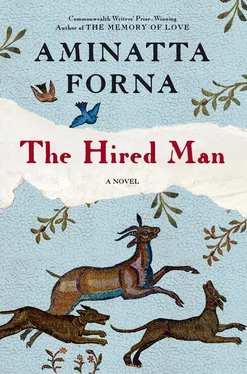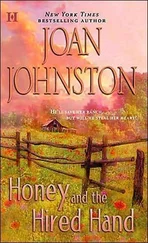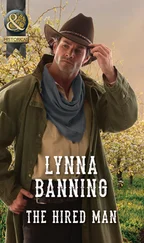I pass nobody. The light is going. At this hour people are at home, especially these days when people spend a lot more time shuttered indoors. I think about them, huddled over their plates of food: cans of potatoes and meat taken from their neighbours’ larders, wearing their neighbours’ clothes, maybe even burning wood from their neighbours’ woodsheds in their stoves. No sight of the moon. A wind from the north brings more wind and with it a light rain, which as I walk begins to fall more heavily, gusting across the road. I wipe the water from my eyes and carry on. At the bend in the road I take the short cut which leads to the back of my parents’ property, behind my father’s shanty town. There, standing at the back door of the house, I see my mother. She isn’t wearing a coat or holding an umbrella, she’s just standing holding herself, allowing the rain to soak through her clothes, looking in the direction of the road. On the road, just pulling away, is the grey van. I recognise it immediately: the grey van with the old-fashioned shape, I last saw it parked outside the school. I’ve only had the knowledge for a short while and I’m already too late. Javor! Do I shout his name? I don’t know. I see my mother turn in my direction and raise both her hands, one in my direction and one in the direction of the van.
I thought I had seen the worst, but worse is to come. I have been wasting time.
Now I run. I cut back out to the road and follow the van. Like a delivery van which has collected a package it isn’t moving especially fast then after a short while it begins to gather speed. It’s headed downhill towards the blue house. I can think only: Anka. I keep running. Briefly I’m aware of my mother’s call. I run through the long field, slash through wheat ready for harvest, releasing clouds of insects. To my left I can see the headlights of the grey van sweeping away from and then back towards me as the van rounds the bend and even though I have been able to cut the corner, moving as fast as I can, I am being left behind. The van is gathering pace. This gives me hope and sure enough the van passes the blue house. I begin to slow down. Saliva floods my mouth, and again the aftertaste of copper. I have sprinted for almost a kilometre. A pain in my side makes me twist. I bend over, my knees crease and I go down. For a few seconds I remain on all fours; I smell flowers, wet soil.
I walk the rest of the way. I think they must be taking Javor to the school building. There may be time yet, something we can do. My mind races through possibilities, turns again to who might help, but no names come to mind. In the last few months everything and everybody has changed. People you thought you knew. There’s Danica and Luka, I trust them, of course. Anka and me. But what can any of us do? Fabjan is the only person I know who might have influence. Fabjan knows the militiamen, they drink in his bar, he buys them rounds. They supply him with black market whisky. I reach the blue house. Fabjan’s car is parked outside. For a fraction of a second I am relieved because Fabjan is already there, ahead of me, but before the whole thought is even formed I know I’m wrong.
Fabjan has known about this all along. He is part of it.
The door of the blue house opens. There is Fabjan now. And there is Anka. He is holding her, fingers closed tight around her upper arm, hurrying her towards the car. Holding the back door open is a man in uniform, one of the new arrivals. Next to him is the young man I spoke to at the school; he wipes his nose with his fingers, his head low while he watches Fabjan with Anka. There is something feral about his posture, that stare. Anka is tying a scarf around her head, she is hurrying. What is she thinking? That Fabjan has come to help her, take her somewhere safe, or maybe somewhere where she can talk to someone who might be persuaded to let Javor go? She has put her trust in him and there’s urgency in her movements, such that she doesn’t seem to notice the grip of Fabjan’s hand on her upper arm.
I’m running again. With two hundred metres between us, I call Anka’s name but the wind, the rain, the cloth of the scarf she is tying around her head blot out the sound. Fabjan, though, hears something. He raises his head sharply and peers into the gathering darkness. I can see him, but he can’t see me. He gestures to the two men, says something to Anka, pushes her along. Now they’re getting into the car. The doors slam. Fabjan guns the engine.
Time passes.
I stand in the rain outside the blue house and when I start moving again it’s at a steady jog. I am wet through, but I feel nothing, just a pulse in my forehead, the beat of my heart, the butt of my rifle hitting my shoulder. By the time I reach the school building it is dark. No lights, no grey van, no sign of Fabjan’s car either. I walk back the way I have come. I have only one idea, which is that they might at some point take Javor or Anka or both up to the ravine and that if I can do nothing else I will go to the ravine and wait. Kos is still with me, keeping pace, the run has scarcely put her out of breath. I have a growing sense now of what I must do.
The door of the blue house is locked. I find the key and let myself in. All is darkness, the smell of cooking and pottery glaze, on the table a pair of freshly glazed dishes. I pick up a cloth lying there, one I’ve seen Anka use to wipe her hands. On the back of the door are scarves, jackets and coats. I take a scarf belonging to Javor. On the counter in the kitchen is the heel of a loaf of bread and a couple of apples, which I stuff into my pockets. I find a piece of salami and take that too. I fill my water bottle from the tin jug of well water in the corner.
On the way back up the hill I run to a slow rhythm, one I maintain until I reach the lower tree line. Only there do I stop for breath. No sign of either the grey van or of Fabjan’s car. I can hear nothing beyond the rain and the wind. I stop and crouch down next to Kos, I talk to her until she is still. One after the other I offer her the things I have taken from the blue house: first the cloth, then the scarf. Again, the cloth and then the scarf. I give her a small piece of salami and shove the rest back in my pocket. I stand, sling my rifle over my shoulder again and we press on, Kos with her nose to the ground. The woods are dark; the only separation between the trees and the air is a difference in the density of the darkness. The trees are a solid black. The air shimmers, is speckled black and grey.
Kos sweeps her head from left to right across the ground and occasionally lifts her head and tilts her nose to the sky. The rain, though heavier now, for the most part fails to break the canopy. The sound of drops hitting the branches creates a white noise that absorbs everything else. We head steadily uphill. All the time I am listening for sounds, of men’s voices or a truck engine, looking for the light of torches between the trees. Although the temperature has dropped and my clothes are soaking I feel neither cold nor hungry, nor thirsty as I had before, instead I feel alert, alive. I have slipped the rifle from my shoulder and now carry it in one hand, my fingers grip the stock. I try to work through events and possible outcomes in my mind, but I can only think of one. The way seems longer than it ever has and when finally I reach the edge of the ravine all is silent. The sky is dark. The moon, in its last quarter, has not yet risen. A scattering of stars and the lights of Gost. There is nothing and nobody. I think about what to do next. I sink to my knees and press my forehead against the barrel of my rifle. Impossible they could have got there before me, without me seeing or hearing them. Kos had picked up no scent. She stands next to me patiently waiting to be told what to do. But I have no other plan.
Читать дальше












